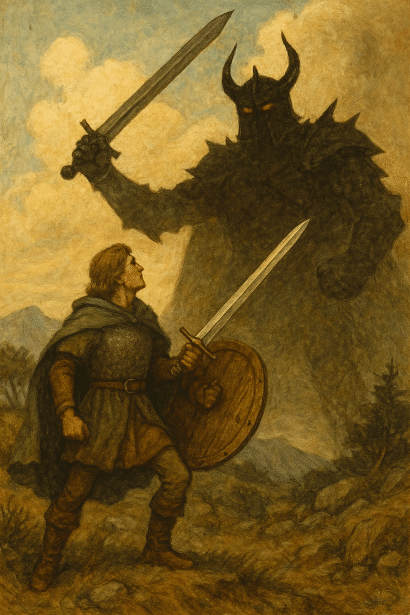In the world of micronations, sovereignty is not just declared—it is defended, shaped, and strengthened through struggle. While many micronational leaders seek legitimacy through alliances and cooperation, history and literature suggest an alternative path: the presence of enemies can be beneficial. In his seminal essay “On Fairy-Stories,” J.R.R. Tolkien reveals a fundamental truth about conflict—without it, heroism remains dormant, and identity lacks definition.
The Role of Enemies in Storytelling and Nation-Building
Tolkien understood that fairy tales are not mere escapism; they reflect the profound truths of human existence. Every great tale requires an adversary, an opposing force that tests resolve, clarifies values, and drives the protagonist forward. Micronations, often small and precarious, can draw wisdom from this principle. A well-defined enemy provides a cause, a unifying force that strengthens national identity and rallies citizens behind their leadership.
Consider the nations of history—without external threats, there would be no need for fortifications, no incentive for diplomatic ingenuity, and no reason to cultivate resilience. For micronations, the mere presence of opposition—whether in the form of dismissal by larger nations or ideological combat—forces a deeper examination of purpose. It pushes a micronation beyond symbolic sovereignty into a living, breathing entity that can withstand challenges.
The Strength Found in Opposition
Enemies, as Tolkien implies through his discussion of eucatastrophe—the sudden, joyous turn in a narrative—are often the catalysts for transformative moments. Struggles and conflicts push a micronation to innovate, refine its cultural and political systems, and create legends of its own. Much like the characters in Middle-earth who find themselves forged in the fires of adversity, micronations that face opposition emerge stronger.
It is through facing criticism, obstacles, and outright rejection that micronations prove their durability. The fight for recognition forces leaders to sharpen their strategies, refine their governance models, and deepen their communities. In the absence of resistance, stagnation threatens even the most idealistic vision.
An Enemy is a Narrative Gift
Tolkien’s fairy-stories teach us that to be great, one must be tested. Micronations, often seen as whimsical or idealistic, can find unexpected strength in adversity. The presence of enemies—whether external detractors or ideological rivals—solidifies identity and strengthens national cohesion.
Rather than fearing opposition, micronations should embrace it. After all, every legendary nation needs its own narrative, its own heroic struggle. And as Tolkien himself knew well, no tale is truly worth telling without a worthy antagonist.

